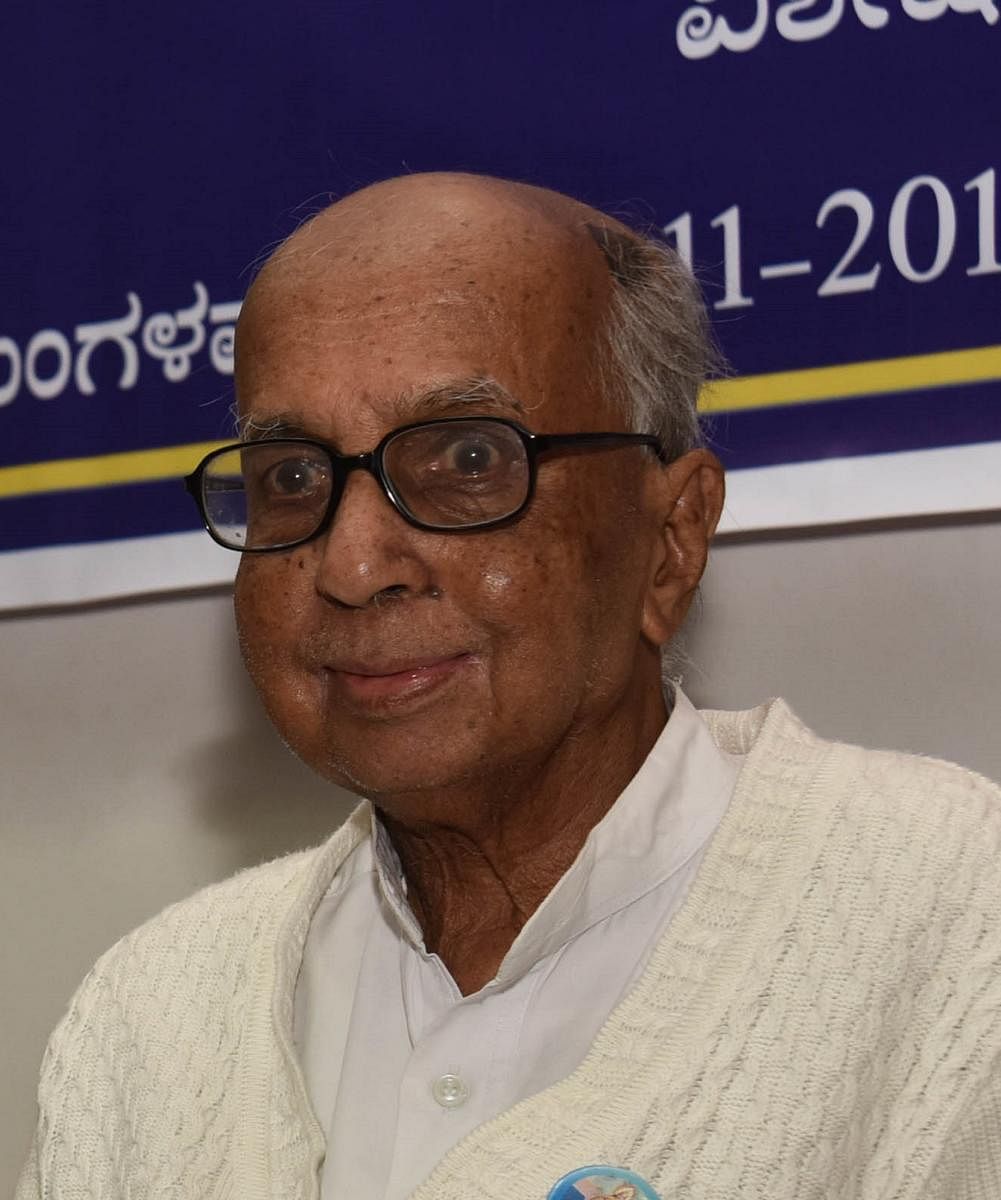
Kannada writer, researcher and historian Chidananda Murthy passed away due to illness at a private hospital here in the wee hours of Saturday.
Murthy (88) was being treated for pneumonia and age-related illness.
The scholar, who breathed his last around 3.45 am, is survived by son Vinay and daughter Shobha.
He was born on May 10, 1931 at Hirekogalur, Channagiri taluk, Davangere district. His mortal remains have been kept at his RPC Layout residence, Bengaluru, for the public to pay last respects. Funeral will take place on Sunday. People of Hirekogalur have demanded that Murthy's last rites should be performed in the village.
A function was scheduled on February 11 to present him the Dr M M Kalaburgi Manavika Adhyana Prashasthi.
Prime Minister Narendra Modi, Chief Minister B S Yediyurappa and a host of political leaders condoled Murthy's demise.
Yediyurappa tweeted, "His place in history is unique. His contributions in protecting monuments of Hampi and in Kannada getting a classical language status is memorable.”
Modi tweeted," Murthy was a doyen of culture and literature. His passion towards Kannada language was noteworthy and so were his efforts to preserve unique aspects of our rich history. His demise is saddening."
After serving in University of Mysore and Bangalore University, he opted for voluntary retirement on October 10, 1990. He played a determining role in Gokak movement in 1982.
He conceived the idea of an exclusive university for Kannada during his padayatra from Bengaluru to Hampi in 1985, which soon became a reality.
Murthy, known for his works on Kannada inscriptions, heralded a dawn in Kannada research.
His contributions in establishing the antiquity of Kannada language helped it get classical status in 2008.
He was was often targeted for his Hindutva ideology and affinity towards the RSS.
His stands on Tipu Sultan Jayanti, Veerashaiva-Lingayat row and border disputes were also criticised. A week ago he had said that Belagavi would never be part of Maharashtra.